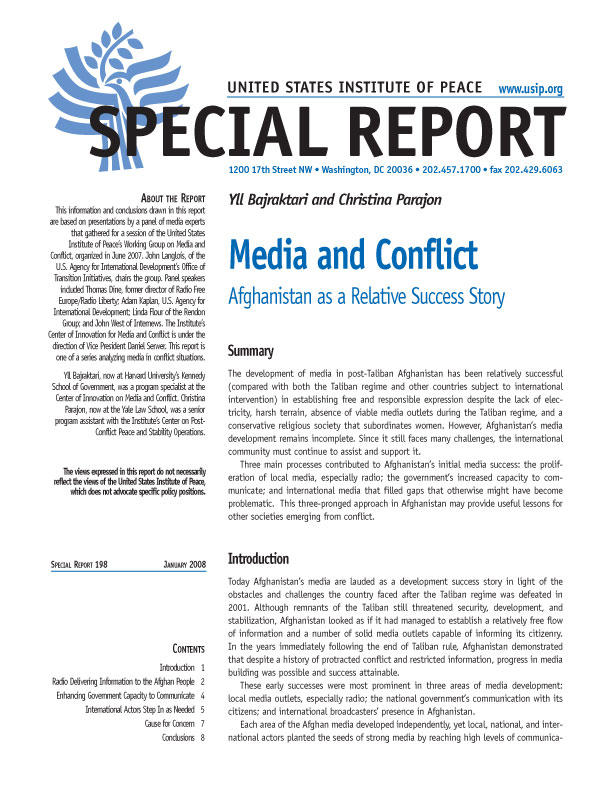The development of media in post-Taliban Afghanistan has been relatively successful. However, such development remains incomplete and still faces many challenges. Hence, the international community must continue to assist and support these efforts.

Summary
The development of media in post-Taliban Afghanistan has been relatively successful (compared with both the Taliban regime and other countries subject to international intervention) in establishing free and responsible expression despite the lack of electricity, harsh terrain, absence of viable media outlets during the Taliban regime, and a conservative religious society that subordinates women. However, Afghanistan’s media development remains incomplete. Since it still faces many challenges, the international community must continue to assist and support it.
Three main processes contributed to Afghanistan’s initial media success: the proliferation of local media, especially radio; the government’s increased capacity to communicate; and international media that filled gaps that otherwise might have become problematic. This three-pronged approach in Afghanistan may provide useful lessons for other societies emerging from conflict.
About the Report
This information and conclusions drawn in this report are based on presentations by a panel of media experts that gathered for a session of the United States Institute of Peace’s Working Group on Media and Conflict, organized in June 2007. John Langlois, of the U.S. Agency for International Development’s Office of Transition Initiatives, chairs the group. Panel speakers included Thomas Dine, former director of Radio Free Europe/Radio Liberty; Adam Kaplan, U.S. Agency for International Development; Linda Flour of the Rendon Group; and John West of Internews. The Institute’s Center of Innovation for Media and Conflict is under the direction of Vice President Daniel Serwer. This report is one of a series analyzing media in conflict situations.
Yll Bajraktari, now at Harvard University’s Kennedy School of Government, was a program specialist at the Center of Innovation on Media and Conflict. Christina Parajon, now at the Yale Law School, was a senior program assistant with the Institute’s Center for Post-Conflict Peace and Stability Operations.